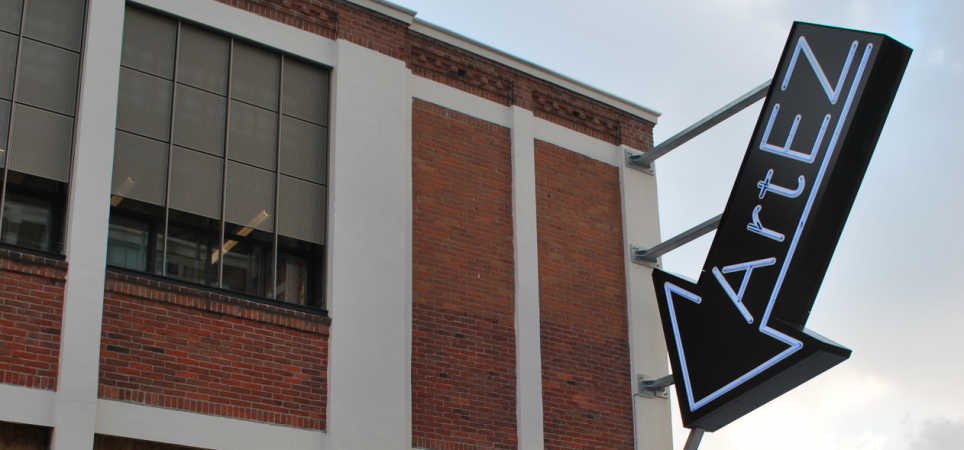Artez University of Applied Sciences can close the top salary file
Almost four years after the Education Inspectorate started an investigation into the remuneration of then interim director Gerben Eggink of the Arnhem University of Applied Sciences Artez, the book can finally be closed. A headache less for the new ministers of education.

Source: Wikipedia, Aidaulc. CC3.0: https://creativecommons.org/licenses/by-sa/3.0/
Conclusion: the Arnhem University of the Arts has returned 44 euros in return, but the long-drawn-out case alone cost the Education Inspectorate, the Ministries of Education and the Interior, the State Attorney and Artez itself many times that amount of manpower.
From March 2013 to April 2014, the then supervisory board of Artez hired interim chairman Eggink through management agency BoerCroon. The school paid more than 137,5 euros (excluding VAT) for 2013 days invoiced in 260. Most of that amount ended up with Eggink himself, the rest was received by BoerCroon as 'agency costs', including support for the interim worker and recruitment fee.
Refund
Initially, the Inspectorate found that the remuneration exceeded the Top Income Standards Act (WNT) in 2013 by 154 thousand euros. The basic principle was that Artez had to recover that money itself. When that came to nothing, the ball again fell to Minister of Education Bussemaker.
Two years ago, she forced Eggink and BoerCroon to jointly return 84.463 euros to Artez. The exceedance had now been considerably reduced by the Education Inspectorate. Both paid under protest, and in a lawsuit against the minister they tried to be right. Artez was no longer a party to those proceedings.
This spring ticked the Amsterdam court the minister on the fingers. The court ruled that agency costs fall outside the norm and were wrongly added to the remuneration. BoerCroon in particular saw this as a victory. At the same time, the court concluded that Eggink's remuneration of 195.207 euros in 2013 still exceeds the WNT standard by 43.744 euros.
New decision
The Education Inspectorate has followed the court's decision and adjusted the exceedance again last summer. That appears from the decision that it Education magazine recently with an appeal to the Government Information (Public Access) Act.
All parties have now accepted this: no appeal has been lodged, the inspectorate confirms when asked. Artez has repaid the remaining 40 thousand euros (the difference between the 84 thousand euros received and the definitive excess of 44 thousand euros) to Eggink and BoerCroon.
Also about the four months in 2014 the Inspectorate previously found that the standard was exceeded. And that too has been adjusted downwards by the Education Inspectorate. The small remainder - reportedly 913 euros - was also settled immediately.
All parties were ready to close the book. Not in the least because the lengthy procedure has cost a lot of time and money in recent years. The settlement is also good news for ministers Arie Slob (CU) and Ingrid van Engelshoven (D66) who took office today, as they no longer have to deal with it. Bussemaker was able to tick off the issue just within her term of office.
Test case
At the end of 2013, with the brand new Top Income Standards Act in hand, she sent the inspectorate to Arnhem to investigate the remuneration of interim director Eggink. The PvdA minister profiled himself as a fighter against top salaries in education. The law was intended to make it possible to recover excessive remuneration from directors themselves, an important novelty. The Artez case served as a test case in the semi-public sector.
But the legislation passed the House at the end of 2011 unanimously assumed, in practice had quite a few snags. The rules left room for different interpretations and sometimes turned out to be simply counterproductive. That is why the law was quickly tinkered with and the standards of interim directors even changed completely at the beginning of last year.
The procedure, which in the meantime continued to drag on, thus acquired absurdistic features. Enforcing the rules occasionally gave the Education Inspectorate in this case headaches and a lot of work, as it turned out last year. a reconstruction that it Education magazine made. The legal battle took place almost entirely behind the scenes.
Artez: “We are pleased that this case has been closed. We focus on things that really matter, namely teaching. ”
An inspection spokesperson cannot indicate how much the Artez case cost in man-hours. “This case was indeed a test case. Partly for this reason, the Inspectorate spent a lot of time on it. It is difficult to say exactly how much or approximately, because several colleagues have been working on it more and less intensively for a longer period of time. ”
Artez University of Applied Sciences is silent. Although it concerns public funds, the institution says it has agreed not to disclose the financial settlement. A spokesperson: “We are pleased that this case has been closed. Artez has a different board, a different supervisory board. We focus on things that really matter, namely teaching. ”
More:
Reconstruction of the Artez case en message, December 2016
Report on court decision, June 2017
See this one too concise timeline.


